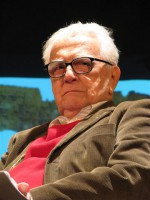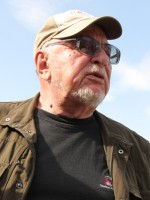Gustaw Holoubek is a Actor Polonais born on 21 april 1923 at Kraków (Pologne)
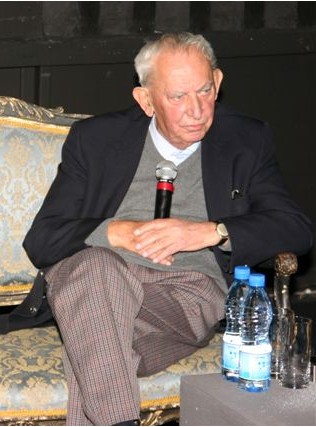
Gustaw Holoubek (21 April 1923 – 6 March 2008) was a Polish actor, director, member of the Polish Sejm, and a senator.
Holoubek participated in the September Campaign and was a prisoner of war during the Nazi German Occupation of Poland. His father was a Czech immigrant who settled in Poland after the First World War, and his mother was Polish.
Holoubek had his first role as an actor in 1947, thus beginning his lifelong career in theatre and film in Poland and abroad. His political career began in 1976, when he was elected to the Sejm, the lower house of the Polish Parliament. He was re-elected in 1980, but resigned in 1981 when martial law was declared. In 1989, he was elected to the Senate, the upper house. That same year, he took a position as a professor at the Academy of Theatre in Warsaw. Holoubek was a recipient of the Order of Polonia Restituta (Knight's Cross, Commander's Cross with Star, Grand Cross).
En 1939, il s'engage comme volontaire dans l'armée polonaise et participe à la campagne de Septembre. Fait prisonnier et détenu dans les camps de Magdebourg et Toruń, il contracte la tuberculose pendant sa captivité. Libéré en 1940, il travaille jusqu'en 1945 à Cracovie dans une usine à gaz.
Après la guerre, Gustaw Holoubek étudie à l'École supérieure de théâtre de Cracovie (Studio d'État d'art dramatique, transformé plus tard en « École nationale de théâtre ») fondée en 1946 et en sort diplômé en 1947. Il fait ses débuts au théâtre le 1er mars 1947, dans le rôle de Charys dans Odysie u Feaków de Stefan Flukowski au Vieux Théâtre de Cracovie (Stary Teatr w Krakowie) et comme acteur au cinéma en 1953 dans le film Żołnierz zwycięstwa (Soldat de la victoire) de Wanda Jakubowska.
Dans les années 1949-1956, il travaille comme directeur artistique, metteur en scène et acteur au Théâtre de Silésie à Katowice.
Au théâtre
Au cours de sa longue carrière au théâtre, Gustaw Holoubek a interprété, entre autres, le rôle principal dans la pièce Fantazy de Juliusz Słowacki dont il avait également assuré la mise en scène (théâtre de Silésie à Katowice, 1955), le juge Custa dans La Lèpre dans le palais de justice d'Ugo Betti, dans une mise en scène de Maria Wiercińska (théâtre Polski, 1958), de Goetz dans Le Diable et le Bon Dieu de Jean-Paul Sartre, dans la mise en scène de Ludwik René au Théâtre dramatique de Varsovie (1960), du violoniste dans L'Abattoir de Sławomir Mrożek (1975), du personnage-titre dans Le Roi Lear de William Shakespeare (1977), ces deux pièces dans la mise en scène de Jerzy Jarocki au Théâtre dramatique de Varsovie. En 1989, il joue dans la pièce Petite Apocalypse d'après le roman de son ami Tadeusz Konwicki, mise en scène par Krzysztof Zaleski au Théâtre Ateneum de Varsovie.
Il était Gustaw-Konrad dans Dziady (Les Aïeux) d'Adam Mickiewicz, mise en scène en 1967 par Kazimierz Dejmek au théâtre national de Varsovie. Le retrait des affiches présentant la pièce par les autorités a contribué à l'éclatement de manifestations d'étudiants qui ont donné naissance aux évènements de mars 1968. La création de Gustaw Holoubek, jouant le rôle principal, a eu une influence certaine pour la promotion du spectacle et la résonance sociale de la pièce. En 1981, il a interprété le rôle de Superiusz dans Pieszo (À pied) de Sławomir Mrożek, mise en scène par Jerzy Jarocki . La présentation de cette pièce a entraîné une protestation de la part, entre autres d'un groupe de militaires, qui a publié une lettre ouverte dans « Żołnierz Wolności » (Soldat de la Liberté).
Gustaw Holoubek a joué dans près d'une centaine de productions de théâtre à la télévision, travaillant avec de nombreux réalisateurs polonais, parmi lesquels Adam Hanuszkiewicz , Zygmunt Hübner , Andrzej Łapicki , Olga Lipińska , Jerzy Gruza , Jan Englert, Andrzej Wajda et Krzysztof Kieślowski. En tant que réalisateur, il a réalisé pour la télévision, entre autres Fantazy (1971) et Kordian (1980) de Juliusz Słowacki, Hamlet de William Shakespeare (1974), Les Bas-fonds de Maxime Gorki (1994), Dwa Teatry (Deux théâtres) de Jerzy Szaniawski (1999) et Œdipe roi de Sophocle (2005).
Il a enseigné à l'Académie de théâtre Alexandre Zelwerowicz de Varsovie. Pendant de nombreuses années il a dirigé le Théâtre dramatique de Varsovie et a été démis de ses fonctions en janvier 1983 en raison d'un conflit avec les autorités de l'époque.
Au cinéma
Au cinéma, il a fait ses débuts en 1953 dans le film Żołnierz zwycięstwa (Soldat de la victoire) de Wanda Jakubowska dans lequel il interprète le rôle de Félix Dzerjinski, un révolutionnaire communiste russe, membre des bolcheviks, qui devint l'un des dirigeants de la Russie soviétique puis de l'Union soviétique, qui fonda et dirigea la Tchéka, la police politique du nouveau régime. Au total, il a joué plus de 50 rôles. Il est apparu dans plusieurs films de Wojciech Has : Le Nœud coulant (Pętla) (1957), Les Adieux (Pożegnania) (1958), Le Manuscrit trouvé à Saragosse (Rękopis znaleziony w Saragossie) (1965) et La Clepsydre (Sanatorium pod klepsydra) (1973). Il a également joué dans La pantoufle dorée de Sylwester Chęciński en 1961, La loi et le poing (Prawo i pięść) de Jerzy Hoffman et Edward Skórzewski (1964), Le Club du professeur Tutki d'Andrzej Kondratiuk (1966), Marysia i Napoleon de Leonard Buczkowski, Si loin, si près d'ici (Jak daleko stąd, jak blisko) (1972) et La lave (Lawa) (1989) de Tadeusz Konwicki. Il a réalisé un court métrage Czas przybliża, czas oddala (Le temps rapproche, le temps éloigne), premier épisode de la série Les piétons en retard (Spóźnieni przechodnie) (1962). Il a également été le scénariste et le réalisateur du film Mazepa (1975), d'après le drame de Juliusz Słowacki.
Activités politiques et sociales
En 1976 et 1980 Gustaw Holoubek est élu député à la Diète de la République populaire de Pologne, sur la liste du Front de l'unité nationale (Front Jedności Narodu). En 1982, après la proclamation de l'État de siège en Pologne, il renonce à son mandat. En 1989-1991 il est élu sénateur sur la liste du Comité des citoyens de Solidarność (Komitet Obywatelski Solidarność), et participe à la création de l'Union démocratique de Tadeusz Mazowiecki. De 1992 à 1993, il a été membre du Conseil des affaires culturelles auprès du Président de la République polonaise Lech Wałęsa.
En 1994, il est élu à l'Académie polonaise des arts et sciences (Polska Akademia Umiejętności). Il a collaboré avec le mensuel Charaktery (Caractères), une revue de psychologie, fondée en 1997.
Gustaw Holoubek meurt le 6 mars 2008 à Varsovie, à l'âge de 84 ans. Il a été décoré, à titre posthume, par le président Lech Kaczyński de l'ordre de l'Aigle blanc, en reconnaissance de son exceptionnelle contribution à la culture polonaise, pour ses remarquables réalisations dans les arts et l'enseignement.
Source : Wikidata
Gustaw Holoubek

Birth name Gustaw Holoubek
Nationality Pologne
Birth 21 april 1923 at Kraków (Pologne)
Death 6 march 2008 (at 84 years) at Warsaw (Pologne)
Awards Medal for Merit to Culture, Order of the White Eagle, Knight of the Order of Polonia Restituta
Nationality Pologne
Birth 21 april 1923 at Kraków (Pologne)
Death 6 march 2008 (at 84 years) at Warsaw (Pologne)
Awards Medal for Merit to Culture, Order of the White Eagle, Knight of the Order of Polonia Restituta
Holoubek participated in the September Campaign and was a prisoner of war during the Nazi German Occupation of Poland. His father was a Czech immigrant who settled in Poland after the First World War, and his mother was Polish.
Holoubek had his first role as an actor in 1947, thus beginning his lifelong career in theatre and film in Poland and abroad. His political career began in 1976, when he was elected to the Sejm, the lower house of the Polish Parliament. He was re-elected in 1980, but resigned in 1981 when martial law was declared. In 1989, he was elected to the Senate, the upper house. That same year, he took a position as a professor at the Academy of Theatre in Warsaw. Holoubek was a recipient of the Order of Polonia Restituta (Knight's Cross, Commander's Cross with Star, Grand Cross).
Biography
Seul enfant d'un Tchèque, installé en Pologne après la Première Guerre mondiale et d'une veuve polonaise de Cracovie, Gustaw Holoubek fait ses études au lycée Bartłomiej Nowodworski de Cracovie.En 1939, il s'engage comme volontaire dans l'armée polonaise et participe à la campagne de Septembre. Fait prisonnier et détenu dans les camps de Magdebourg et Toruń, il contracte la tuberculose pendant sa captivité. Libéré en 1940, il travaille jusqu'en 1945 à Cracovie dans une usine à gaz.
Après la guerre, Gustaw Holoubek étudie à l'École supérieure de théâtre de Cracovie (Studio d'État d'art dramatique, transformé plus tard en « École nationale de théâtre ») fondée en 1946 et en sort diplômé en 1947. Il fait ses débuts au théâtre le 1er mars 1947, dans le rôle de Charys dans Odysie u Feaków de Stefan Flukowski au Vieux Théâtre de Cracovie (Stary Teatr w Krakowie) et comme acteur au cinéma en 1953 dans le film Żołnierz zwycięstwa (Soldat de la victoire) de Wanda Jakubowska.
Dans les années 1949-1956, il travaille comme directeur artistique, metteur en scène et acteur au Théâtre de Silésie à Katowice.
Au théâtre
Au cours de sa longue carrière au théâtre, Gustaw Holoubek a interprété, entre autres, le rôle principal dans la pièce Fantazy de Juliusz Słowacki dont il avait également assuré la mise en scène (théâtre de Silésie à Katowice, 1955), le juge Custa dans La Lèpre dans le palais de justice d'Ugo Betti, dans une mise en scène de Maria Wiercińska (théâtre Polski, 1958), de Goetz dans Le Diable et le Bon Dieu de Jean-Paul Sartre, dans la mise en scène de Ludwik René au Théâtre dramatique de Varsovie (1960), du violoniste dans L'Abattoir de Sławomir Mrożek (1975), du personnage-titre dans Le Roi Lear de William Shakespeare (1977), ces deux pièces dans la mise en scène de Jerzy Jarocki au Théâtre dramatique de Varsovie. En 1989, il joue dans la pièce Petite Apocalypse d'après le roman de son ami Tadeusz Konwicki, mise en scène par Krzysztof Zaleski au Théâtre Ateneum de Varsovie.
Il était Gustaw-Konrad dans Dziady (Les Aïeux) d'Adam Mickiewicz, mise en scène en 1967 par Kazimierz Dejmek au théâtre national de Varsovie. Le retrait des affiches présentant la pièce par les autorités a contribué à l'éclatement de manifestations d'étudiants qui ont donné naissance aux évènements de mars 1968. La création de Gustaw Holoubek, jouant le rôle principal, a eu une influence certaine pour la promotion du spectacle et la résonance sociale de la pièce. En 1981, il a interprété le rôle de Superiusz dans Pieszo (À pied) de Sławomir Mrożek, mise en scène par Jerzy Jarocki . La présentation de cette pièce a entraîné une protestation de la part, entre autres d'un groupe de militaires, qui a publié une lettre ouverte dans « Żołnierz Wolności » (Soldat de la Liberté).
Gustaw Holoubek a joué dans près d'une centaine de productions de théâtre à la télévision, travaillant avec de nombreux réalisateurs polonais, parmi lesquels Adam Hanuszkiewicz , Zygmunt Hübner , Andrzej Łapicki , Olga Lipińska , Jerzy Gruza , Jan Englert, Andrzej Wajda et Krzysztof Kieślowski. En tant que réalisateur, il a réalisé pour la télévision, entre autres Fantazy (1971) et Kordian (1980) de Juliusz Słowacki, Hamlet de William Shakespeare (1974), Les Bas-fonds de Maxime Gorki (1994), Dwa Teatry (Deux théâtres) de Jerzy Szaniawski (1999) et Œdipe roi de Sophocle (2005).
Il a enseigné à l'Académie de théâtre Alexandre Zelwerowicz de Varsovie. Pendant de nombreuses années il a dirigé le Théâtre dramatique de Varsovie et a été démis de ses fonctions en janvier 1983 en raison d'un conflit avec les autorités de l'époque.
Au cinéma
Au cinéma, il a fait ses débuts en 1953 dans le film Żołnierz zwycięstwa (Soldat de la victoire) de Wanda Jakubowska dans lequel il interprète le rôle de Félix Dzerjinski, un révolutionnaire communiste russe, membre des bolcheviks, qui devint l'un des dirigeants de la Russie soviétique puis de l'Union soviétique, qui fonda et dirigea la Tchéka, la police politique du nouveau régime. Au total, il a joué plus de 50 rôles. Il est apparu dans plusieurs films de Wojciech Has : Le Nœud coulant (Pętla) (1957), Les Adieux (Pożegnania) (1958), Le Manuscrit trouvé à Saragosse (Rękopis znaleziony w Saragossie) (1965) et La Clepsydre (Sanatorium pod klepsydra) (1973). Il a également joué dans La pantoufle dorée de Sylwester Chęciński en 1961, La loi et le poing (Prawo i pięść) de Jerzy Hoffman et Edward Skórzewski (1964), Le Club du professeur Tutki d'Andrzej Kondratiuk (1966), Marysia i Napoleon de Leonard Buczkowski, Si loin, si près d'ici (Jak daleko stąd, jak blisko) (1972) et La lave (Lawa) (1989) de Tadeusz Konwicki. Il a réalisé un court métrage Czas przybliża, czas oddala (Le temps rapproche, le temps éloigne), premier épisode de la série Les piétons en retard (Spóźnieni przechodnie) (1962). Il a également été le scénariste et le réalisateur du film Mazepa (1975), d'après le drame de Juliusz Słowacki.
Activités politiques et sociales
En 1976 et 1980 Gustaw Holoubek est élu député à la Diète de la République populaire de Pologne, sur la liste du Front de l'unité nationale (Front Jedności Narodu). En 1982, après la proclamation de l'État de siège en Pologne, il renonce à son mandat. En 1989-1991 il est élu sénateur sur la liste du Comité des citoyens de Solidarność (Komitet Obywatelski Solidarność), et participe à la création de l'Union démocratique de Tadeusz Mazowiecki. De 1992 à 1993, il a été membre du Conseil des affaires culturelles auprès du Président de la République polonaise Lech Wałęsa.
En 1994, il est élu à l'Académie polonaise des arts et sciences (Polska Akademia Umiejętności). Il a collaboré avec le mensuel Charaktery (Caractères), une revue de psychologie, fondée en 1997.
Gustaw Holoubek meurt le 6 mars 2008 à Varsovie, à l'âge de 84 ans. Il a été décoré, à titre posthume, par le président Lech Kaczyński de l'ordre de l'Aigle blanc, en reconnaissance de son exceptionnelle contribution à la culture polonaise, pour ses remarquables réalisations dans les arts et l'enseignement.
Usually with
Filmography of Gustaw Holoubek (24 films)
Actor
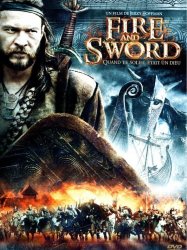
With Fire and Sword (1999)
, 2h55Directed by Jerzy Hoffman
Origin Pologne
Genres Drama, War, Adventure, Historical, Crime, Romance
Actors Izabella Dorota Skorupko, Michał Żebrowski, Małgorzata Foremniak, Krzysztof Kowalewski, Bohdan Stupka, Andrzej Seweryn
Roles senator Kisiel
Rating69%





The story is set in Ukrainian lands of the Crown of the Kingdom of Poland of the 17th century during the Khmelnytsky Uprising 1648-51. A Polish knight Skrzetuski and a Cossack otaman Bohun fall in love with the same woman, Helena. Their rivalry unfolds against the backdrop of a Cossack uprising led by Bohdan Khmelnytsky aimed at reclaiming the control of the land from the hands of the Polish nobles. Historic events form a framework for an action- and character-driven plot, and fictional characters mingle with historic ones. The movie, as the book, culminates with the savage Battle of Berestechko.
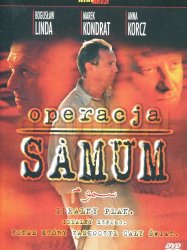
Operacja Samum (1999)
, 1h30Actors Marek Kondrat, Bogusław Linda, Olaf Lubaszenko, Jerzy Skolimowski, Gustaw Holoubek, Edward Linde-Lubaszenko
Roles Shopsowitz
Rating53%





The film takes place after the Iraqi invasion of Kuwait in 1990. The film opens with retired Major Józef Mayer (Marek Kondrat) in a doctor’s office in Warsaw. Mayer is a former agent of the Polish Office for State Protection (UOP), the main Polish intelligence agency. Mayer’s doctor tells him that he may die from an unspecified disease. The film then shifts to Baghdad, Iraq, where Iraqi security forces raid a CIA safehouse maintained by CIA agent Jeff Magnus (Kristof Konrad). Walton and his two other CIA agents manage to escape into hiding as they prepare to leave Iraq before a possible war. Walton is warned by a Polish-American Mossad agent named Karen Pierce (Anna Korcz) to leave Iraq immediately. Meanwhile, Pierce is having an affair with Mayer’s son Paweł (Radosław Pazura), who is a Polish engineer working in Iraq. Paweł is detained and Pierce escapes after they are stopped by Iraqi secret police. While in a military prison, Paweł is tortured for not disclosing Pierce’s location to the Iraqis. The Iraqis suspect that Paweł is a spy.
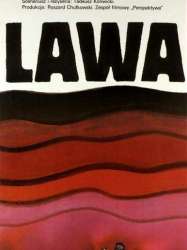 , 2h9
, 2h9Genres Drama, Historical, Romance
Actors Gustaw Holoubek, Maja Komorowska, Grażyna Szapołowska, Henryk Bista, Piotr Fronczewski, Tadeusz Łomnicki
Roles Hermit-Gustaw / Ghost / Gustaw-Konrad / Poet
Rating67%





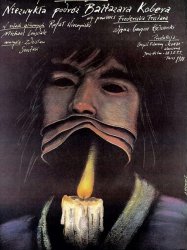 , 1h55
, 1h55Directed by Wojciech Has
Genres Drama, Fantasy, Historical
Actors Michael Lonsdale, Gabriela Kownacka, Emmanuelle Riva, Daniel Emilfork, Jerzy Bończak, Zofia Merle
Roles Cammerschulze (voice)
Rating67%





Young alchemy student Balthazar (Rafal Wieczynski) and his master (Michael Lonsdale) are forced to flee their home by the inquisition. The set off on a journey across a plague-stricken Germany, encountering various people including corrupt priests and Kabbalists, not to mention ghosts and even an angel, before ending up in Venice where he falls in love with a young actress.
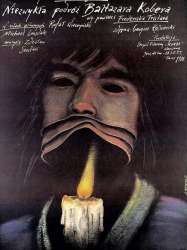
Directed by Wojciech Has
Origin Pologne
Genres Drama, Fantasy, Historical
Actors Michael Lonsdale, Emmanuelle Riva, Daniel Emilfork, Gabriela Kownacka, Christiane Irène Yvonne Charlotte Laurent, Évelyne Dassas
Roles Cammerschulze (voice)
Rating67%





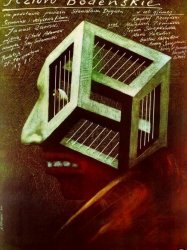
Sons and Comrades (1985)
, 1h22Directed by Janusz Zaorski
Origin Pologne
Genres Drama
Actors Joanna Szczepkowska, Krzysztof Pieczyński, Adam Ferency, Gustaw Holoubek, Krzysztof Kowalewski, Kalina Jędrusik
Roles Roullot
Rating57%





Un Polonais, interné pendant la Seconde Guerre mondiale dans un camp d'internement à la frontière entre la Suisse et l'Allemagne. Des années plus tard il revient dans la région. Les souvenirs de cette période reviennent. Il rencontre également quelques femmes qui l'intéressaient à cette époque.

Write and Fight (1985)
, 1h53Directed by Wojciech Has
Genres Drama
Actors Gustaw Holoubek, Gabriela Kownacka, Andrzej Krukowski, Gustaw Lutkiewicz, Jerzy Zelnik
Roles Investigator
Rating63%





Set during the First World War, Raphael (Wojciech Wysocki), is a young journalist with literary ambitions who is arrested and put in prison for publishing an anti-clerical magazine called "The Devil". There he is given a cell with a famous safecracker (Zdzislaw Wardejn) and Sixtus (Jan Peszek), a taciturn former monk charged with murder. The writer forms the idea for a novel based on the stories his cellmates share, however when he contracts typhoid fever it becomes hard for him to distinguish what is real and what is imaginary.

An Uneventful Story (1983)
, 1h46Directed by Wojciech Has
Genres Drama
Actors Gustaw Holoubek, Janusz Gajos
Roles Professor
Rating70%





Michal (Gustaw Holoubek) is a middle aged professor of medicine in a provincial town who is bored by the mundane and superficial nature of his life, friends and family. Katarzyna (Hanna Mikuc), a young woman returns to the town and the two have an affair.
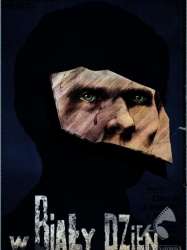
In Broad Daylight (1981)
Genres Drama, Historical
Actors Krystyna Janda, Gustaw Holoubek, Michał Bajor, Krzysztof Kolberger, Jan Nowicki, Jerzy Radziwiłowicz
Roles investigating judge
Rating63%






The Hourglass Sanatorium (1973)
, 2h4Directed by Wojciech Has
Origin Pologne
Genres Drama, Fantasy, Horror
Actors Jan Nowicki, Gustaw Holoubek, Jerzy Przybylski, Ludwik Benoit, Jerzy Trela, Tadeusz Schmidt
Roles Dr. Gotard
Rating74%





Joseph (Jan Nowicki) travels through a dream-like world, taking a dilapidated train to visit his dying father, Jacob, in a sanatorium. When he arrives at the hospital, he finds the entire facility is going to ruin and no one seems to be in charge or even caring for the patients. Time appears to behave in unpredictable ways, reanimating the past in an elaborate artificial caprice.
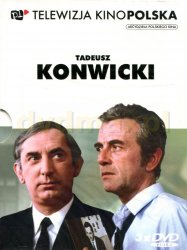
How Far, How Near (1972)
, 1h33Genres Drama
Actors Andrzej Łapicki, Maja Komorowska, Gustaw Holoubek, Stanisław Jasiukiewicz, Piotr Pawłowski, Wirgiliusz Gryń
Roles Maks
Rating70%





Andrzej, a forty-year-old man, is tormented both by post-war trauma and by suicidal death of his friend. He sets off on a symbolic journey through past, present, and future to meet ghosts of childhood friends, parents, first love, first wife.
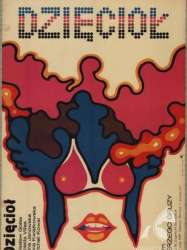
The Woodpecker (1971)
, 1h25Genres Comedy
Actors Wiesław Gołas, Irena Kwiatkowska, Władysław Hańcza, Violetta Villas, Alina Janowska, Wiesław Michnikowski
Roles Thief (voice) (uncredited)
Rating62%





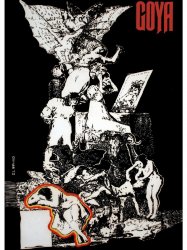 , 2h16
, 2h16Directed by Konrad Wolf
Genres Drama, Historical
Themes Political films, Napoleonic Wars films, French Revolution films
Actors Donatas Banionis, Ernst Busch, Olivera Katarina, Fred Düren, Tatyana Lolova, Wolfgang Kieling
Roles Bermudez
Rating70%





Elevé au rang de peintre fétiche de la cour du roi Charles IV d'Espagne, Francisco de Goya jouit d'une excellente réputation. S'il a foi dans l'Eglise et la royauté, Goya est aussi un patriote d'origine modeste, attaché au peuple. Homme de contradictions, il nourrit une passion dévorante pour la duchesse Alba, tout en désapprouvant sa morgue aristocratique. Goya traduit ces états d'âme dans des oeuvres singulières, qui paraîtront plus tard d'une grande modernité. A mesure qu'avance son «apprentissage» politique, ses toiles perdent leurs couleurs chatoyantes pour aborder un univers plus sombre et plus radical, jusqu'à s'attirer les foudres du Grand Inquisiteur...

Colonel Wolodyjowski (1969)
, 2h40Directed by Jerzy Hoffman
Genres War, Adventure, Historical
Actors Tadeusz Łomnicki, Daniel Olbrychski, Magdalena Zawadzka, Mieczysław Pawlikowski, Barbara Brylska, Jan Nowicki
Roles Priest Kamiński (voice) (uncredited)
Rating71%





 Connection
Connection



